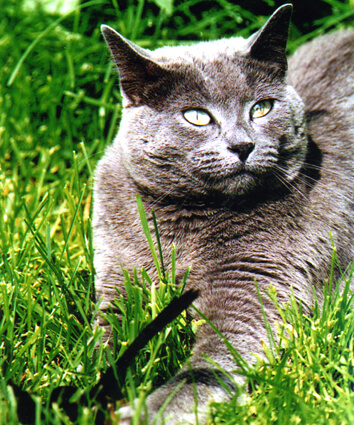Nation's Mayors Asked to Stop Spread of Feral Cats
MEDIA RELEASE
Contact: Robert Johns, 202-234-7181 ext.210,
 |
| Cat with dead bird by Marjorie Gibson |
(Washington, D.C., November 9, 2011) American Bird Conservancy (ABC), the nation's leading bird conservation organization, has called on the mayors of U.S. cities to stop the epidemic spread of feral cats that threaten national bird populations as well as scores of other wildlife. Letters were mailed to mayors of the fifty largest cities in the United States, urging they support responsible pet ownership and oppose Trap-Neuter-Release (TNR) programs that promote the feeding of outdoor cats.
“Cat overpopulation is a human-caused tragedy that affects the health and well-being of cats, our native wildlife, and the public,” says Darin Schroeder, Vice President for Conservation Advocacy for ABC in a letter to the mayors. “Numerous published, scientific studies have shown that trap, neuter, re-abandon programs do not reduce feral cat populations, and that outdoor cats, even well-fed ones, kill hundreds of millions of wild birds and other animals each year in the U.S., including endangered species. Birds that nest or feed on the ground are especially vulnerable to cat attacks.”
“What few people seem to understand is that the domestic cat is an extremely effective predator that has been introduced by modern man into an environment whose species have evolved few, if any natural cat defenses. Non-native, well-fed, inoculated, healthy cats versus defenseless prey is about as fair in the world of nature as the proverbial shooting of fish in a barrel,” he said.
Studies indicate that there are 95 million outdoor and feral cats in the United States that kill at least 532 million birds, and possibly significantly more. Given the well-documented impacts of cat predation on wildlife, ABC urges the mayors to oppose TNR programs and the outdoor feeding of cats as a feral cat management option.
Specifically, ABC asks the mayors to issue a policy directive opposing TNR, and to halt city funding for the practice if any is currently being expended. The ABC letter says that dog overpopulation problems aren't solved by simply turning unwanted dogs loose onto the streets; the same should be true for cats. Ensuring responsible pet ownership is at the core of any long-term solution to the cat overpopulation problem.
“This is a problem in every city in America including our most populous, New York City,” said Schroeder. “Unfortunately we see too many cities abdicating their responsibility to public welfare and wildlife, and embracing TNR programs. We urge Mayors to take a closer look and recognize this doesn't work to reduce cat populations.”
ABC suggests communities concerned about feral cats work to enact mandatory licensing programs, the fees from which can fund programs to help find homes for the unwanted pets and educate pet owners about keeping their cats indoors. Through the Cats Indoors! Campaign, American Bird Conservancy and its many partners encourage people to keep their cats indoors, train them to go outside on a harness and leash, or build outdoor cat enclosures. Cats should be spayed or neutered before they can produce an unwanted litter, and should never be abandoned. Abandoning cats is illegal in many areas, is extremely cruel to cats, and is harmful to birds and other wildlife. Further, the sanctioning of cat colonies by local officials only serves to encourage cat owners to dump more unwanted cats at these sites.
“TNR is not humane to the cats or the wildlife. Free-roaming cats are in constant danger of being hit by cars, contracting diseases and parasites, or being attacked by other animals or people,” said Schroeder. “Colonies often become dumping grounds for unwanted pets, thus continuing the inhumane cycle.”
Cats can also transmit diseases such as rabies, toxoplasmosis, and cat scratch fever to humans. In fact, the Centers for Disease Control and Prevention (CDC) has declared that cats are the top carrier of rabies in domestic animals. In just the last month, about 30 feral cats in northwestern Florida were euthanized following tests that confirmed two feral cats in the area were indeed rabid.
Food left out at TNR colonies attracts not only more cats, but hungry wildlife as well, which increases the chances for interactions with rabid animals. Three people in Florida living in the vicinity of TNR feeding sites were bitten last year by rabid cats and had to undergo rabies treatments.
Federal, state, and local governments have responsibilities under the Endangered Species Act and Migratory Bird Treaty Act to protect birds. Failing to do so can result in legal penalties and civil liability.
The National Association of Public Health Veterinarians, The Wildlife Society, and the People for the Ethical Treatment of Animals have joined ABC in opposing TNR programs.
These issues are explained in an informative video on TNR and cat colonies, viewable here.


















































